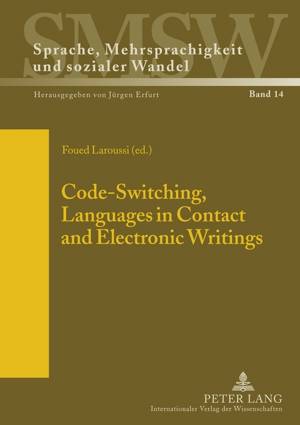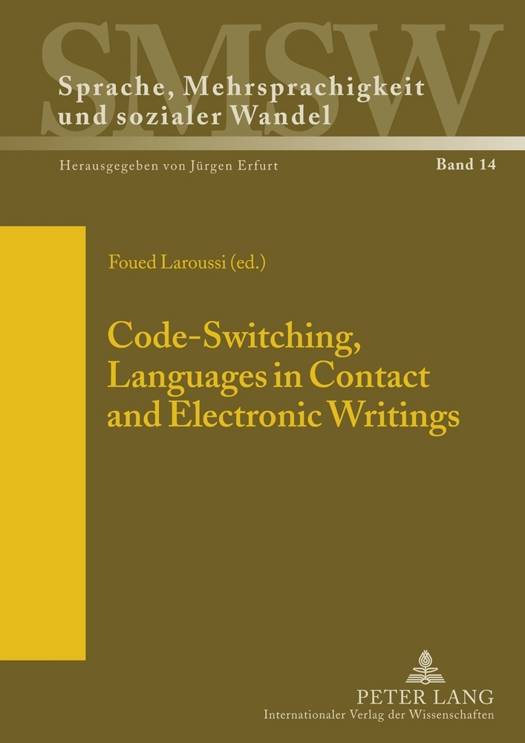
- Afhalen na 1 uur in een winkel met voorraad
- Gratis thuislevering in België vanaf € 30
- Ruim aanbod met 7 miljoen producten
- Afhalen na 1 uur in een winkel met voorraad
- Gratis thuislevering in België vanaf € 30
- Ruim aanbod met 7 miljoen producten
Zoeken
Code-Switching, Languages in Contact and Electronic Writings
€ 51,95
+ 103 punten
Omschrijving
The aim of this book is not to revisit work done on code-switching as a verbal strategy, but to discuss code-switching in electronic writing. Sociolinguistic approaches have focused mainly on the analysis of oral productions. What is the position with regard to writing and, more specifically, electronic writing? In this collection dealing with code-switching situations in electronic writing the contributors give answers to the following major question: what happens when multilingual writers who belong to social networks, virtual or otherwise, communicate among themselves in one or more common languages? Special attention is given to code-switching both in CMCs (Computer-Mediated Communications) and in mobile phone use. Given the constraints inherent in both types of communication, the written productions they give rise to do not show the same features and therefore do not call for the same treatment.
Specificaties
Betrokkenen
- Uitgeverij:
Inhoud
- Aantal bladzijden:
- 162
- Taal:
- Engels
- Reeks:
- Reeksnummer:
- nr. 14
Eigenschappen
- Productcode (EAN):
- 9783631609101
- Verschijningsdatum:
- 13/04/2011
- Uitvoering:
- Hardcover
- Formaat:
- Genaaid
- Afmetingen:
- 148 mm x 210 mm
- Gewicht:
- 319 g

Alleen bij Standaard Boekhandel
+ 103 punten op je klantenkaart van Standaard Boekhandel
Beoordelingen
We publiceren alleen reviews die voldoen aan de voorwaarden voor reviews. Bekijk onze voorwaarden voor reviews.










